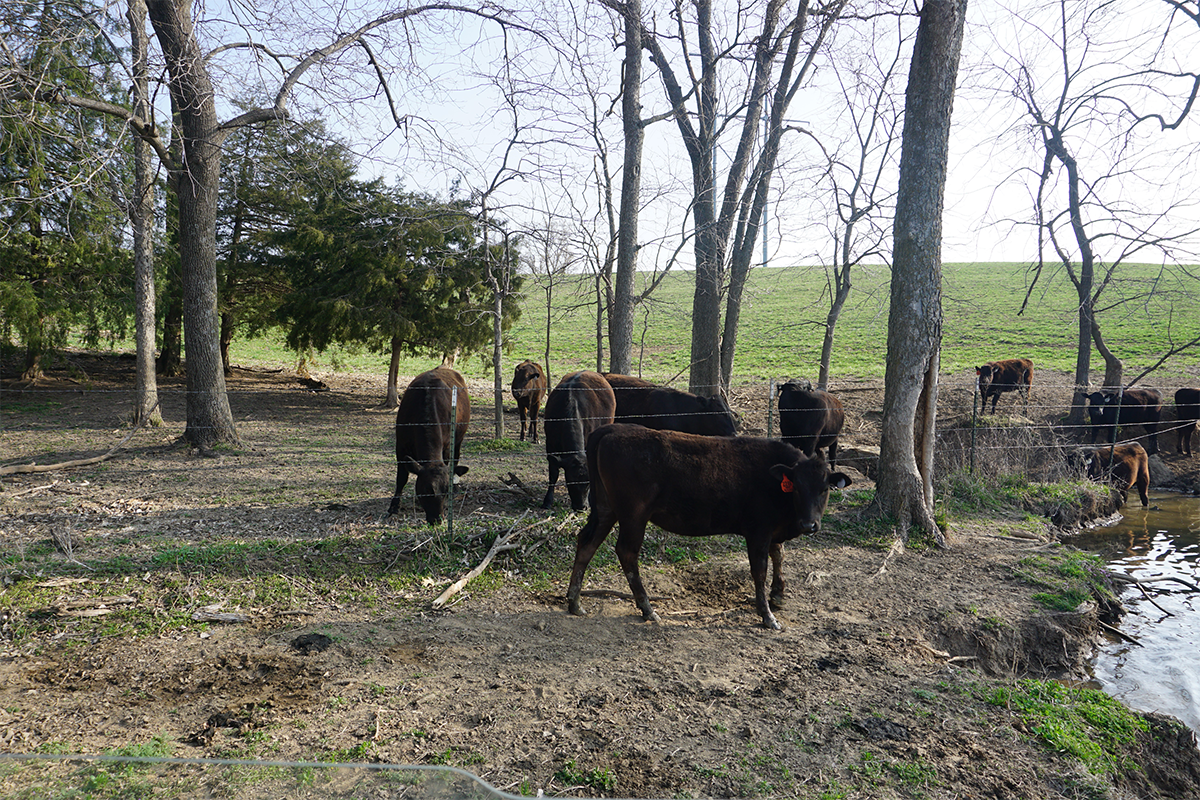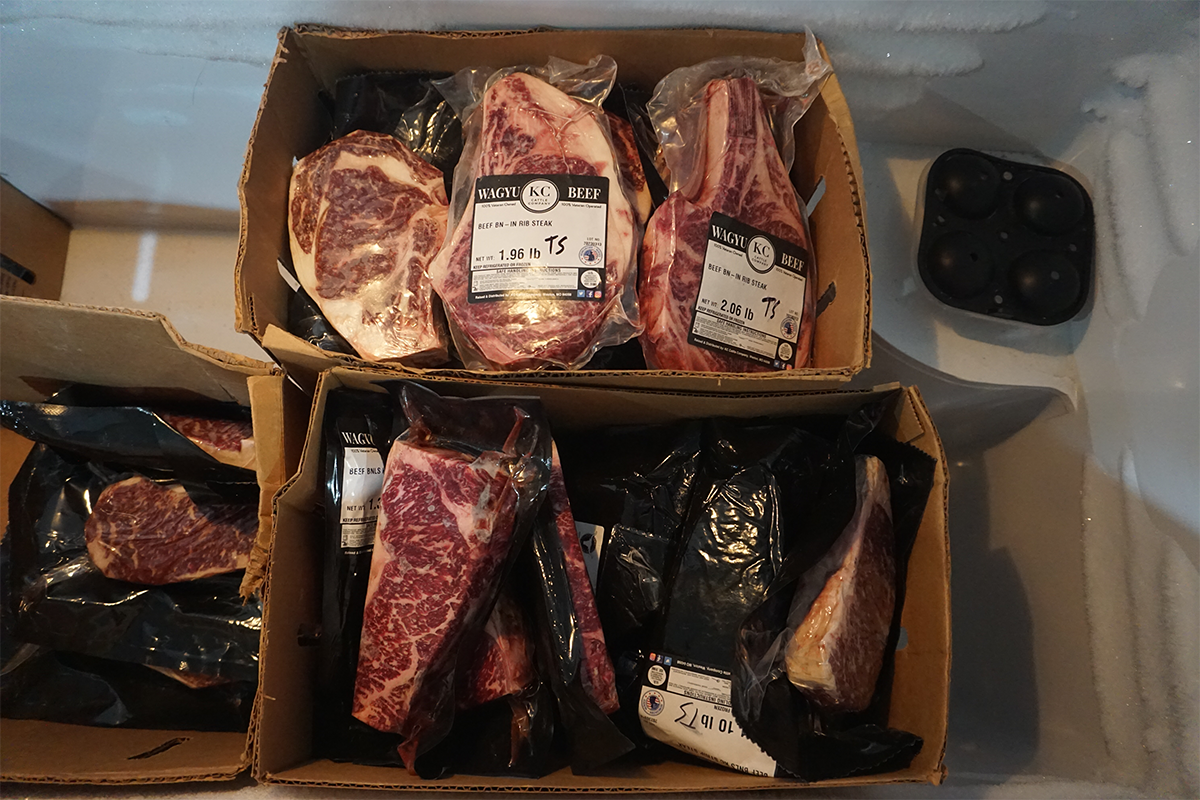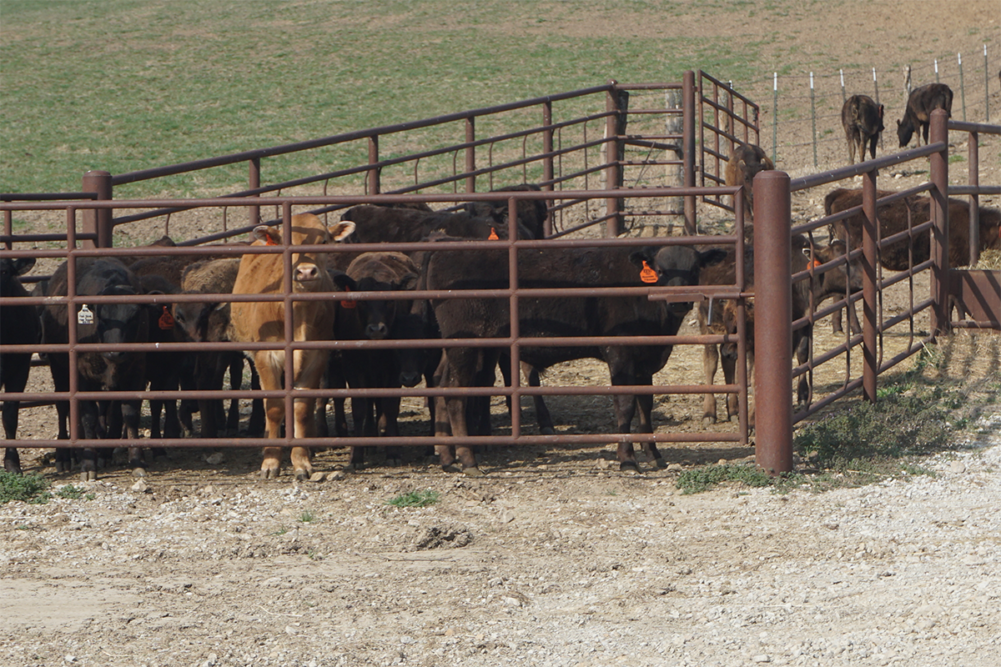When former US Army Ranger Patrick Montgomery retired from military service, with some prior background in agriculture, he planned to use funding from his GI Bill to go to college to be a veterinarian. He decided that the schooling necessary and the salaries of large animal vets didn’t line up with his vision of the future.
Montgomery then interviewed for a job as a security consultant. He felt like he didn’t have a good grasp on what the job really entailed, so he asked one of his interviewers about how they spent their days. Montgomery didn’t like what he heard.
“I came from a job position where I did really cool stuff and was hunting down some of the most dangerous people on the planet,” Montgomery said. “It felt like I was really just selling that for a paycheck.”
On his way home from that fateful interview Montgomery called his wife and told her he didn’t feel right about taking a security consultant job. Instead, he took his GI Bill and went to the University of Missouri to pursue a Master of Business Administration. For one of his classes, he put together a business plan that, in 2016, became the Kansas City Cattle Co.
“I put the business plan together for this and filled that void,” Montgomery said. “A new mission and new purpose post military service.”
Command HQ
KC Cattle does sell some pork and seafood, but the company gets those products from other suppliers, Montgomery said. All the KC Cattle beef products come from a processor partner, packaged and ready to ship to customers. The team operates and picks and packs orders from a 1,600-square-foot space that includes office space and two commercial chest freezers on the farm. The company deemed one of the chest freezers “Top Secret Classified.”
“This is some our best-looking stuff,” Montgomery said of the inventory in the top secret freezer. “It’s our best marbled product. The ‘classified’ product goes off a BMS score which is what the Japanese use for grading steaks.”
A 180-square-foot walk-in freezer holds the remaining inventory which fluctuates seasonally.
“We’ve really bootstrapped it,” Montgomery said. “I mean, for the holiday in December, we did 4,000 orders last year in the month of December out of the 1,600 square feet. So, it’s a little cramped out there for the holiday season.”
As a young company, KC Cattle has its own retail shop in Parkville, Mo., sends mail orders from its space on the farm and is placed in Kansas City area retail groceries including Price Chopper, Hen House and McKeever’s Market & Eatery — this in addition to the business it does on the livestock side.
As prices for both wagyu and Angus continue to go up, KC Cattle has looked to buy more bulls. It’s partnered with neighboring farms, anywhere from an hour away to six or seven states away.
“What we’re working on now is turning out bulls on neighboring properties and buying back the feeder calves,” Montgomery said. “It’s a pretty good deal and no one is dependent on the commodity market.”
Kansas City Cattle Co.’s land spans 428 acres in the hills of Weston, Mo., and is the grazing home to an average of 250 head. The cattle breeds include both American Wagyu (50% wagyu and 50% Angus) and full-blooded wagyu (99% wagyu). The company currently employs eight workers and Montgomery makes every effort to hire veterans whenever possible.
 Kansas City Cattle Co. grazes an average of 250 head of both American Wagyu and full-blooded wagyu on 428 acres in the hills of Weston, Mo. (Source: Sosland Publishing Co./Bob Sims)
Kansas City Cattle Co. grazes an average of 250 head of both American Wagyu and full-blooded wagyu on 428 acres in the hills of Weston, Mo. (Source: Sosland Publishing Co./Bob Sims)
Growth and giving back
KC Cattle plans to grow and expand in the future, but in a methodical and controlled way. Early this year the company began working with a new processor, in Minnesota, to slaughter its cattle. Last year it slaughtered about 300 head, but it was the biggest client the processor had. This year its goal is to hit 500 head for the year, so its size poses a problem unless it is with just the right partner. The new processor also meets other criteria Montgomery wants for the company.
One of the bigger challenges for KC Cattle is its size. Traditional meat lockers seem to be too small, but for packers that kill 1,000 head a day, KC Cattle is too small. Another factor is having specific audits in place should the company need them to pursue certain customers.
“Portion cutting is huge,” he said. “When we ask for certain specs on a steak, it has to be those specs. It can’t be plus or minus six or seven ozs. It’s got to be what we asked for.” Montgomery added, “With the new processor up in Minnesota, they do 100 beef a day and they’re kind of a perfect size for us, they have all the qualifications for the big grocery store and wholesaler, which is another hurdle for smaller places.
“If we choose to go after a bigger wholesaler or grocery store that require those audits, we needed a processor with those in place.”
Montgomery said he plans to sell some equity in the business and didn’t feel great about it initially, but upon reflection he said it will open some great opportunities for the business. For example, he’d like to move the office and distribution to Kansas City within a year. Also, KC Cattle plans to pursue the grocery store market strongly. While steaks have not moved well at approximately $80 a piece, the ground beef from trim has done well in the segment.
“So, the steaks I think we’ll probably keep online,” Montgomery said. “The trim sales, I think supermarkets will be a big growth vehicle for that.”
The equity sale and growth plan will also provide Montgomery and KC Cattle an opportunity to do what it truly loves, expand on a major piece of the company’s mission, and give back to the veteran community.
Many of Montgomery’s veteran brethren are getting into agriculture as a second career after leaving the service. Friends from the military often reach out to him asking questions about the business, and it gave him an idea.
“I had this idea like a year and a half ago,” Montgomery said. “I thought why don’t we just sell these people’s products and they can take a contract to the bank, get funding and be able to move forward on producing.”
There are some partnerships in the works with a soft launch of mid- to late-2023. Montgomery’s vision is a marketplace or website that KC Cattle operates as a place for veteran producers to sell.
“They’ll have an end state,” he said. “We’ll buy it from them at a premium because we can sell a majority of our stuff at a premium. So that’s the plan and it’s been fun.”
 After a friend encouraged Montgomery to try wagyu beef, he immediately became a fan of the highly marbled meat. (Source: Sosland Publishing Co./Bob Sims)
After a friend encouraged Montgomery to try wagyu beef, he immediately became a fan of the highly marbled meat. (Source: Sosland Publishing Co./Bob Sims)
Why wagyu?
Montgomery knew as a small agricultural business in the beef and cattle industry he could not compete with grocery stores or commodity type product. He knew he needed a product he could charge a premium price for to make it work. He sampled beef from different farmers’ markets but didn’t feel like he could taste enough differentiation in flavor from what he could buy at a grocery store. An eating experience put him on the wagyu track.
“I bought a wagyu steak from one of my veteran buddies down in Texas that was in Ranger Regiment with me,” he said. “I tried it, and I was like, this is the best thing I have ever tasted. That was kind of the catalyst.”
While wagyu beef was firmly established in the national market, Montgomery believes he was a year or two ahead of the Kansas City market.
“I feel like every single week, we would have people asking, ‘Why are your steaks so expensive?’ We really don’t get that anymore. So, it’s really kind of caught on,” he said. “Getting into it here in Kansas City it’s really blown up since then.”
The average number of animal units on the farm represents about one-third of what KC Cattle needs on a yearly basis for harvest. KC Cattle often sells animals to be finished to other producers and then buys them back to achieve the number of animals needed to send to slaughter.
Montgomery breeds cattle, both 50/50 Angus/wagyu and full-blooded wagyu and purchases them as well, but the genetically superior “seed stock” wagyu, he purchases at auction. One of his prize heifers, mother to one of his prize bulls, was purchased at auction for $3,500 in 2018.
“They’ve gotten expensive as the breed has really caught on,” Montgomery said. “You can’t find a heifer for under $10,000 right now on the full blood side. I was at an auction two weeks ago [mid- to late-March 2023] and 50% interest for a bull went for $340,000. It was a really good bull, but almost $1 million. And the technology behind all that you can order is crazy,” he said. “Say you bought that $340,000 bull and it died the next day. You can have a geneticist come out and take its DNA and clone that bull.”
At an auction in late March 2023, Montgomery bought four frozen embryos. Each embryo has a 50% chance of being taken. Montgomery hopes to get at least two cows out of the four. He said science continues to play a crucial role in the breeding of the highly desirable wagyu.
Montgomery’s early entry into the Kansas City area’s wagyu market and his special operations doggedness and intellect make KC Cattle an odds-on favorite to successfully complete its mission.



